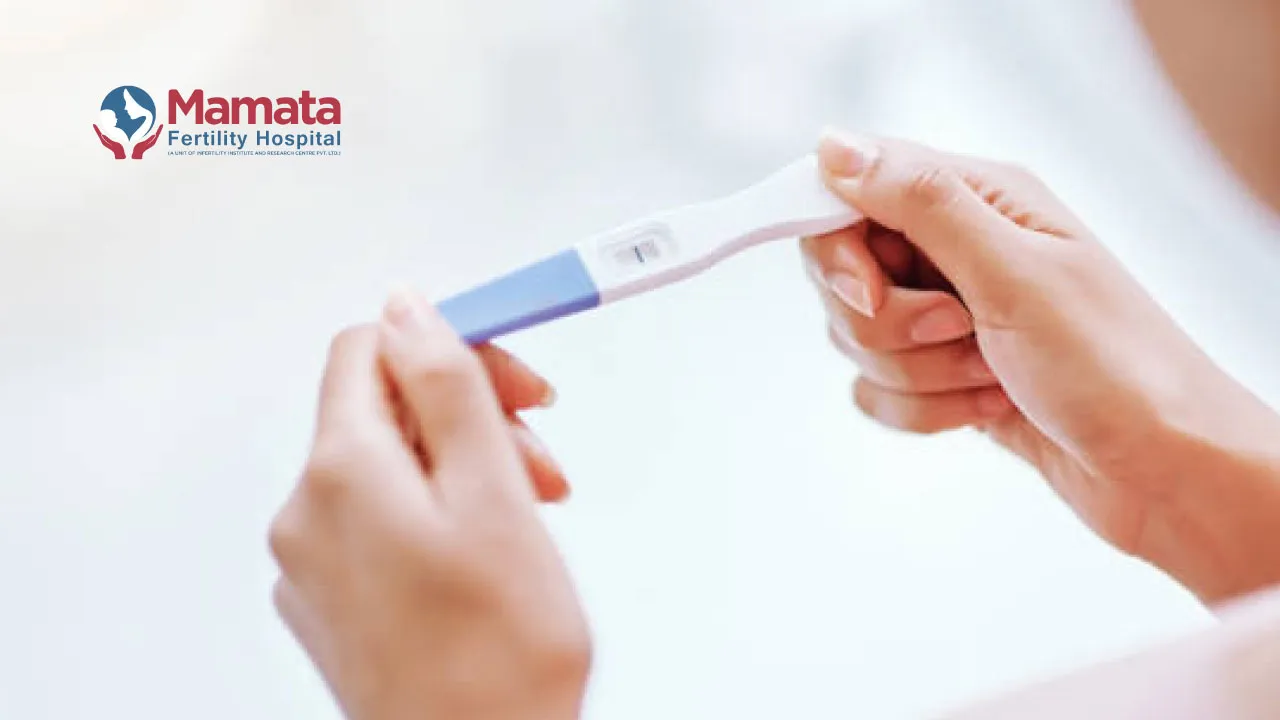Understanding the Emotional Rollercoaster of the Two-Week Wait (TWW)
The two-week wait (TWW) after an IVF procedure can be an emotional rollercoaster for couples. It’s a period filled with anticipation, hope, and sometimes anxiety. Couples often find themselves intensely focused on every symptom, interpreting every twinge or delay as a potential sign of success or failure.
However, for some, the situation becomes even more perplexing when a negative pregnancy test is accompanied by a missed period. Why would this happen? What could it mean for your IVF outcome? This blog dives into the possible reasons and offers insights to guide you through this challenging time.
Common Reasons for a Negative Test but No Period After IVF
A negative pregnancy test coupled with no period can be confounding. Yet, it’s not unusual for women undergoing IVF. Below are some common reasons that might explain this phenomenon:
1. Hormonal Fluctuations
Effects of Medications on the Menstrual Cycle
IVF treatment often involves hormone injections and medications to stimulate egg production. These hormonal fluctuations can sometimes disrupt the menstrual cycle, delaying the onset of a period even if the pregnancy test is negative.
How Progesterone Can Delay the Onset of Periods
Progesterone supplements, commonly prescribed after embryo transfer to support implantation, may artificially sustain the uterine lining. This can delay menstruation even if the embryo has not implanted successfully.
2. Stress and Emotional Factors
Emotional Stress Impacting Hormonal Regulation
The TWW is a stressful period. This stress can hinder hormonal balance, potentially delaying your period. High levels of cortisol (the stress hormone) can interfere with reproductive hormones, making cycles irregular.
The Role of Mental Health in Reproductive Health
The mental toll of IVF treatments cannot be overstated. Your body and mind are intrinsically linked, and emotional well-being plays a critical role in overall reproductive health. Fertility specialists, such as those at Mamata Fertility Specialist Hospital in Hyderabad, often recommend stress management techniques alongside treatment.
3. Late Implantation
Possibility of Late Embryo Implantation
Sometimes, the embryo implants later than expected. If implantation occurs closer to the end of the TWW, it may prolong the detection of hCG (human chorionic gonadotropin), the hormone that pregnancy tests measure.
How This Can Delay Detectable hCG Levels
Even the most sensitive home pregnancy tests require certain levels of hCG to confirm pregnancy. A late implantation could mean the hormone hasn’t reached detectable levels in the bloodstream or urine by the time of your test.
4. Ovarian Hyperstimulation Syndrome (OHSS)
Explanation of OHSS and Its Impact on Menstrual Cycles
Ovarian hyperstimulation syndrome (OHSS) happens when the ovaries are overstimulated by fertility medications. This condition can disturb your menstrual cycle, delaying periods or causing symptoms that mimic pregnancy.
Symptoms and When to Seek Medical Attention
OHSS symptoms include abdominal pain, bloating, nausea, shortness of breath, sweating/ vomiting. If you suspect OHSS, it’s crucial to contact your fertility specialist promptly. The team at Mamata Fertility Specialist Hospital is well-equipped to handle complications like OHSS and provide tailored support.
When to Seek Medical Advice
Timing is everything in IVF, and knowing when to seek medical advice can make all the difference. If you’re facing a negative pregnancy test coupled with no period and are unsure what to do next, consider these scenarios:
- Persisting Symptoms: If you experience significant discomfort, bloating, or other symptoms of OHSS, reach out to your specialist immediately.
- Uncertainty About the Test Results: False negatives can occur, especially with late implantation. Request a blood test to measure your hCG levels more accurately.
- Menstrual Irregularities Beyond a Few Weeks: Delayed periods lasting several weeks after a negative test should be discussed with your fertility expert. Treatment adjustments might be necessary to regulate your cycle.
The Role of Lifestyle Changes and Alternative Therapies
You may be surprised at how much diet, exercise, and stress management can influence your IVF outcomes. Introducing small lifestyle changes could support your treatment in meaningful ways:
- Diet: Include nutrient-dense foods that support hormone balance, such as leafy greens, healthy fats, and lean proteins.
- Exercise: Moderate, low-impact activities like walking or yoga can improve blood flow and reduce stress without over-taxing your body.
- Stress Management: Practices such as mindfulness, meditation, and acupuncture have shown a potential to lower stress levels and improve fertility outcomes.
Facilities like Mamata Fertility Specialist Hospital often integrate lifestyle advice into their treatment plans to enhance patient outcomes.
Taking the Next Step in Your IVF Journey
The path to parenthood can be winding, but it is not one you have to walk alone. Remember that setbacks are just part of the process, and breakthroughs often come when you persist.
If you’re in Hyderabad, consider reaching out to the experts at Mamata Fertility Specialist Hospital. Their team of seasoned fertility specialists is dedicated to providing compassionate, evidence-based care tailored to your needs.
Wherever you are in your IVF journey, stay strong, stay informed, and never stop believing in the possibility of brighter days ahead.
Resources and References for Further Support
- Counselling Services: Seek professional counselling to cope with the emotional stress of IVF.
- Fertility Support Groups: Joining a community of like-minded individuals can provide emotional solace and shared insights.
- Further Reading:
- Understanding Late Implantation and Its Impact
- Managing Stress During IVF Treatments
- The Role of Nutrition in Fertility




